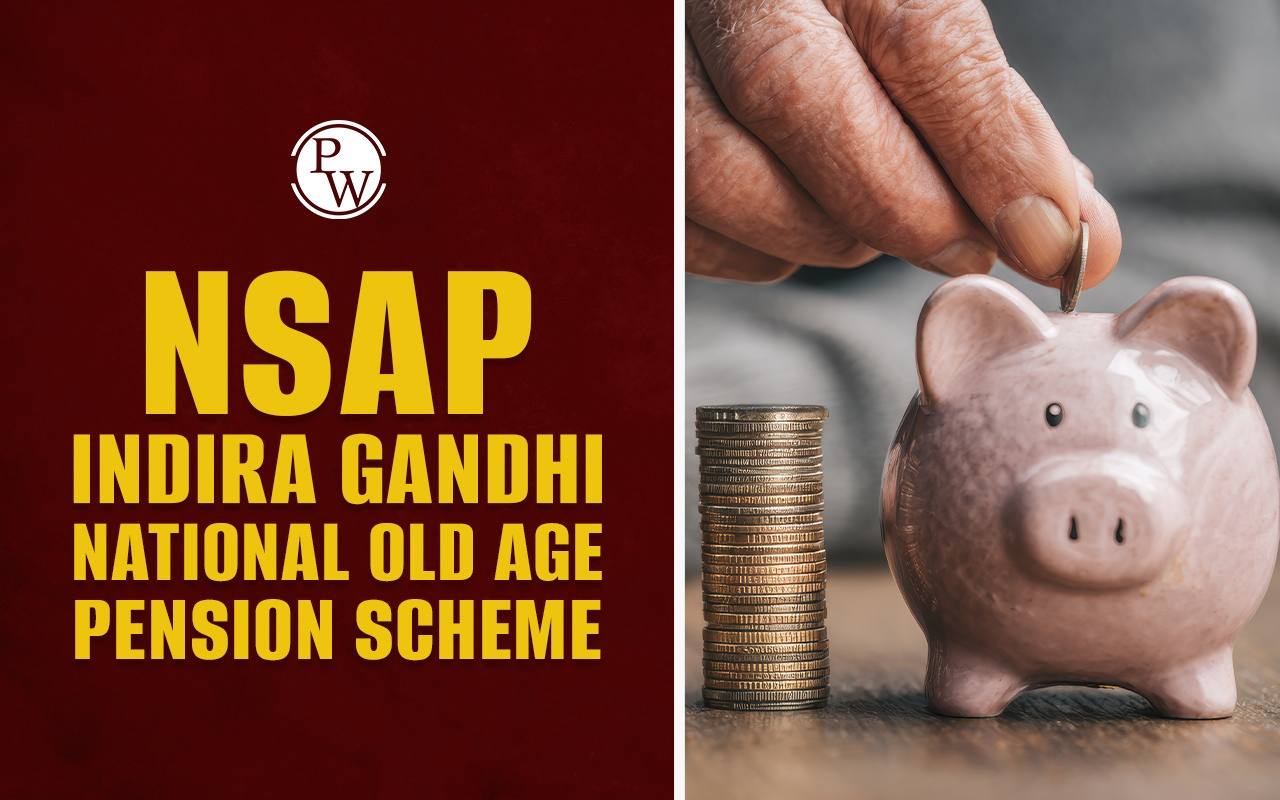
Minimum Support Price (MSP) is a market intervention scheme under which the government announces a pre-determined price for 22 crops and steps in to purchase when the market price falls below it. The Minimum Support Price ensures that farmers receive a guaranteed price and protects them from volatile market prices. Read on to learn more about MSP!
What is the Minimum Support Price (MSP)?
The Minimum Support Price (MSP) is the minimum price set by the government for certain crops. It ensures that farmers get a fair price for their produce, even when market prices drop. MSP was introduced in 1966-67 as part of agricultural reforms aimed at enhancing food security during the Green Revolution. It acts as a safety net to prevent farmers from incurring heavy losses.
The Indian government announces MSP twice a year before the Kharif (monsoon) and Rabi (winter) sowing season. The objective is to provide financial security and encourage farmers to grow essential crops. The Commission for Agricultural Costs and Prices (CACP) recommends MSP, and the Cabinet Committee on Economic Affairs (CCEA) approves it.
List of Crops Covered Under MSP
The government sets MSP for 22 crops to support farmers. It includes 14 Kharif, 6 Rabi, and 2 commercial crops:
Kharif Crops:
-
Paddy
-
Jowar
-
Bajra
-
Ragi
-
Maize
-
Tur (Arhar)
-
Moong
-
Urad
-
Groundnut
-
Sunflower Seed
-
Soyabean (Yellow)
-
Sesamum
-
Nigerseed
-
Cotton
Rabi Crops:
-
Wheat
-
Barley
-
Gram
-
Masur (Lentil)
-
Rapeseed & Mustard
-
Safflower
Commercial Crops:
-
Copra
-
Jute
How MSP is Determined?
The Commission for Agricultural Costs and Prices (CACP) recommends MSP based on multiple factors. The government considers these factors before announcing MSP:
-
Cost of Production: The primary factor is the cost of inputs like seeds, fertilizers, irrigation, and labour. A minimum margin of 50% over the cost of production is ensured.
-
Demand and Supply: The price is set by analyzing market trends and consumer demand.
-
Market Price Trends: The government studies the domestic and international prices to ensure MSP is competitive.
-
Inter-Crop Price Parity: The price balance between different crops is maintained to encourage diversified farming.
-
Terms of Trade: The government also considers the terms of trade between the agricultural and non-agricultural sectors when fixing MSPs.
Other factors include:
-
Changes in input prices
-
Input-output price parity
-
Industrial cost structure
-
Cost of living
-
issue prices and implications for subsidy
-
Parity between prices paid and prices received by the farmers.
The government uses the A2+FL formula, which includes the actual paid-out cost (A2) plus the imputed value of family labour (FL), to set a fair MSP. It is typically set at least 1.5 times the cost of production.
Why is MSP Required?
MSP plays a crucial role in Indian agriculture. It provides stability, security, and motivation for farmers to continue production. Here’s why MSP is essential:
-
Ensures Farmers’ Income: It guarantees farmers a minimum income, protecting them from losses.
-
Encourages Crop Production: Farmers grow more staple crops, ensuring food security in India.
-
Reduces Market Uncertainty: It prevents drastic price falls during bumper harvests.
-
Supports Rural Economy: MSP uplifts the agricultural sector, which employs a large part of India's workforce.
-
Prevents Exploitation: Traders cannot force farmers to sell at lower prices due to MSP support.
- Promotes Sustainable Farming: By offering MSP on various crops, the government encourages balanced farming practices.
Latest Minimum Support Price 2025-26
According to the website of the Directorate of Economics and Statistics, Ministry of Agriculture and Farmers Welfare, the latest Minimum Support Price (Rs. per quintal) applicable for the 2025-26 season is as follows as of 22 January 2025:
| Commodity | Variety | 2023-24 | 2024-25 | Increase in MSP (2024-25 over 2023-24) |
| Kharif Crops | ||||
| Paddy | Common | 2183 | 2300 | 117 (5.4%) |
| Grade 'A' | 2203 | 2320 | 117 (5.3%) | |
| Jowar | Hybrid | 3180 | 3371 | 191 (6.0%) |
| Maldandi | 3225 | 3421 | 196 (6.1%) | |
| Bajra | 2500 | 2625 | 125 (5.0%) | |
| Ragi | 3846 | 4290 | 444 (11.5%) | |
| Maize | 2090 | 2225 | 135 (6.5%) | |
| Tur (Arhar) | 7000 | 7550 | 550 (7.9%) | |
| Moong | 8558 | 8682 | 124 (1.4%) | |
| Urad | 6950 | 7400 | 450 (6.5%) | |
| Groundnut | 6377 | 6783 | 406 (6.4%) | |
| Sunflower Seed | 6760 | 7280 | 520 (7.7%) | |
| Soyabeen (Yellow) | 4600 | 4892 | 292 (6.3%) | |
| Sesamum | 8635 | 9267 | 632 (7.3%) | |
| Nigerseed | 7734 | 8717 | 983 (12.7%) | |
| Cotton | Medium Staple | 6620 | 7121 | 501 (7.6%) |
| Long Staple | 7020 | 7521 | 501 (7.1%) | |
| Rabi Crops | ||||
| Wheat | 2275 | 2425 | 150 (6.6%) | |
| Barley | 1850 | 1980 | 130 (7.0%) | |
| Gram | 5440 | 5650 | 210 (3.9%) | |
| Masur (Lentil) | 6425 | 6700 | 275 (4.3%) | |
| Rapeseed & Mustard | 5650 | 5950 | 300 (5.3%) | |
| Safflower | 5800 | 5940 | 140 (2.4%) | |
| Toria | 5650 | 5950 | 300 (5.3%) | |
| Commercial Crops | ||||
| Copra | Milling | 10860 | 11160 | 300 (2.8%) |
| Ball | 11750 | 12000 | 250 (2.1%) | |
| De-Husked Coconut | 2930 | 3013 | 83 (2.8%) | |
| Jute | 5050 | 5335 | 285 (5.6%) | |
Note: The government fixed the MSP for Fair Average Quality of Milling Copra at ₹ 11582/- per quintal and for Ball Copra at ₹ 12100/- per quintal for the 2025 season. The government has also increased MSP for Raw Jute (TD-3 grade) at ₹ 5650/- per quintal for 2025-26.
UPSC PYQs on Minimum Support Price
Here are previous year's questions that were asked in the Civil Service examination on MSP:
|
UPSC Prelims 2023: Consider the following statements:
How many of the above statements are correct? (a) Only one (b) Only two (c) All three (d) None UPSC Prelims 2020: Consider the following statements:
Which of the statements given above is/are correct? (a) 1 only (b) 2 only (c) Both 1 and 2 (d) Neither 1 nor 2 UPSC Mains 2018: What do you mean by Minimum Support Price (MSP)? How will MSP rescue the farmers from the low-income trap? (150 words, 10 marks) |
Minimum Support Price (MSP) is a critical policy for Indian farmers. It ensures fair pricing, financial security, and market stability. The government determines MSP based on production costs and market trends. While it has many benefits, improvements in implementation can make it more effective.
Want to learn more about agricultural policies for UPSC? Join Physics Wallah’s UPSC courses today!
Minimum Support Price (MSP) FAQs
What is the MSP full form?
What is MSP for farmers?
How many crops are covered under MSP?
Who announces the Minimum Support Price (MSP)?
What is the A2+FL formula in MSP?










